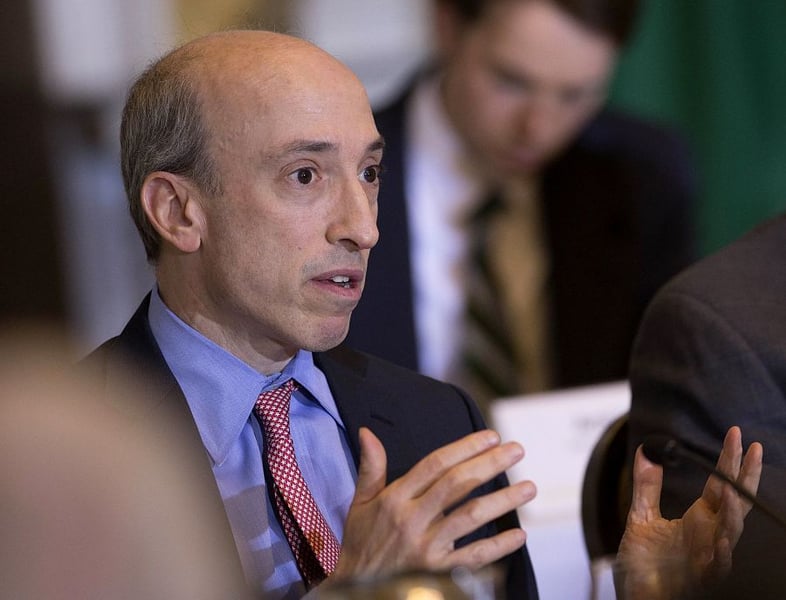

The Securities and Exchange Commission is considering more stringent disclosure requirements for investment funds amid concerns that some in the industry are making unfounded ESG claims.
“Many funds these days brand themselves as ‘green,‘ ‘sustainable,‘ ‘low-carbon,’ and so on,” SEC Chairman Gary Gensler said Wednesday, according to the text of a speech he delivered to the European Parliament Committee on Economic and Monetary Affairs. “I’ve directed staff to review current practices and consider recommendations about whether fund managers should disclose the criteria and underlying data they use to market themselves as such.”
The comments mark the latest warning to the asset management industry to avoid inflated language around its environmental, social and governance allocations.
Last week, investors dumped shares of Deutsche Bank’s asset manager DWS Group, after learning it was being probed by Germany’s financial markets regulator BaFin and U.S. prosecutors. The investigations follow allegations by DWS’s former sustainability executive, Desiree Fixler, who says the firm overstated its ESG assets. DWS says it did nothing wrong.
The development has rattled an industry that’s struggling to adapt to a much stricter regulatory environment. In Europe, the Sustainable Finance Disclosure Regulation, enforced in March, is the world’s most ambitious set of rules yet intended to fight greenwashing and promises to dramatically alter the way the investment management industry operates.
“Investigations by U.S. and German authorities of sustainability disclosures by DWS Group is a sign to all companies that regulators are increasing scrutiny of ESG issues,” Bloomberg Intelligence analyst Elliott Stein wrote in a note on Wednesday. “Even if the DWS probe turns up no wrongdoing -- as we think may be the case in Europe at least -- regulatory pressure will persist.”

The leadership changes coming in June, which also include wealth management and digital unit heads, come as the firm pushes to offer more comprehensive services.

Strategist sees relatively little risk of the university losing its tax-exempt status, which could pose opportunity for investors with a "longer time horizon."

As the next generation of investors take their turn, advisors have to strike a fine balance between embracing new technology and building human connections.

IFG works with 550 producing advisors and generates about $325 million in annual revenue, said Dave Fischer, the company's co-founder and chief marketing officer.

Five new RIAs are joining the industry coalition promoting firm-level impact across workforce, client, community and environmental goals.
RIAs face rising regulatory pressure in 2025. Forward-looking firms are responding with embedded technology, not more paperwork.
As inheritances are set to reshape client portfolios and next-gen heirs demand digital-first experiences, firms are retooling their wealth tech stacks and succession models in real time.
